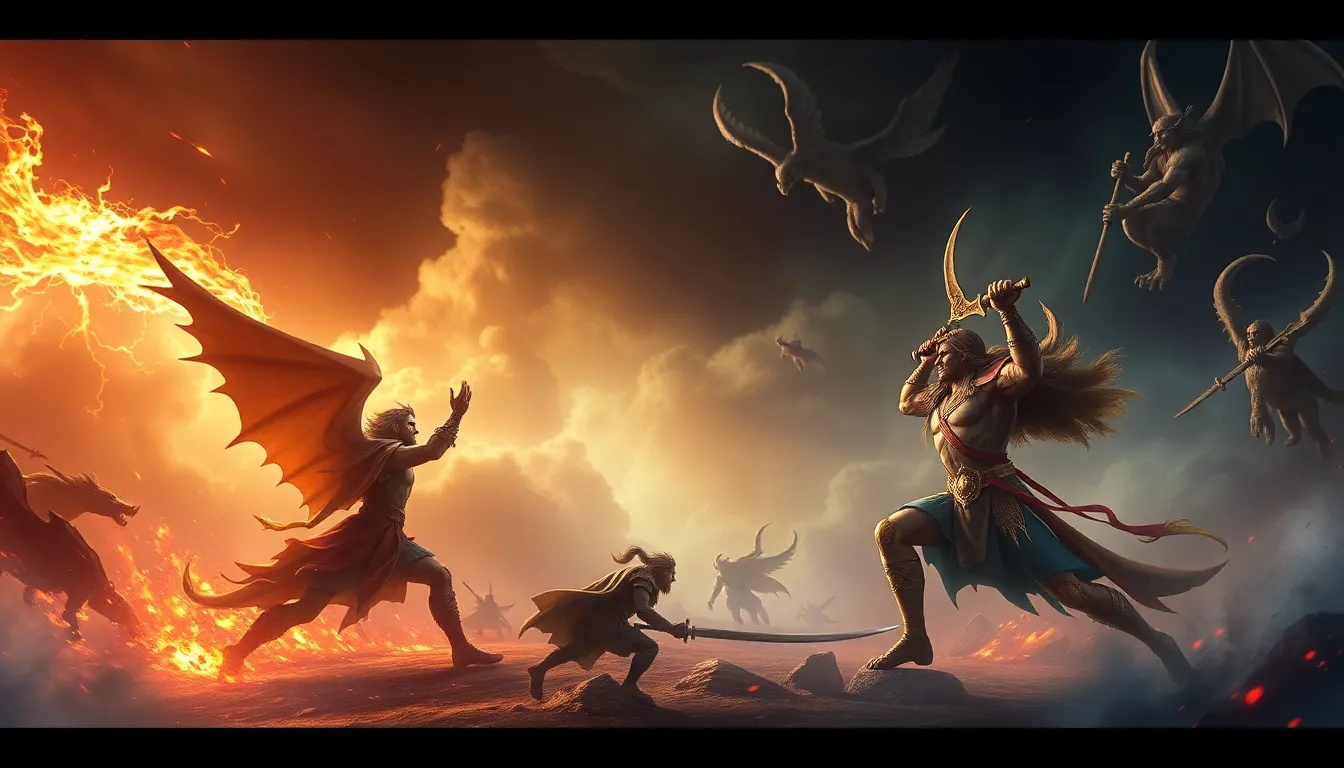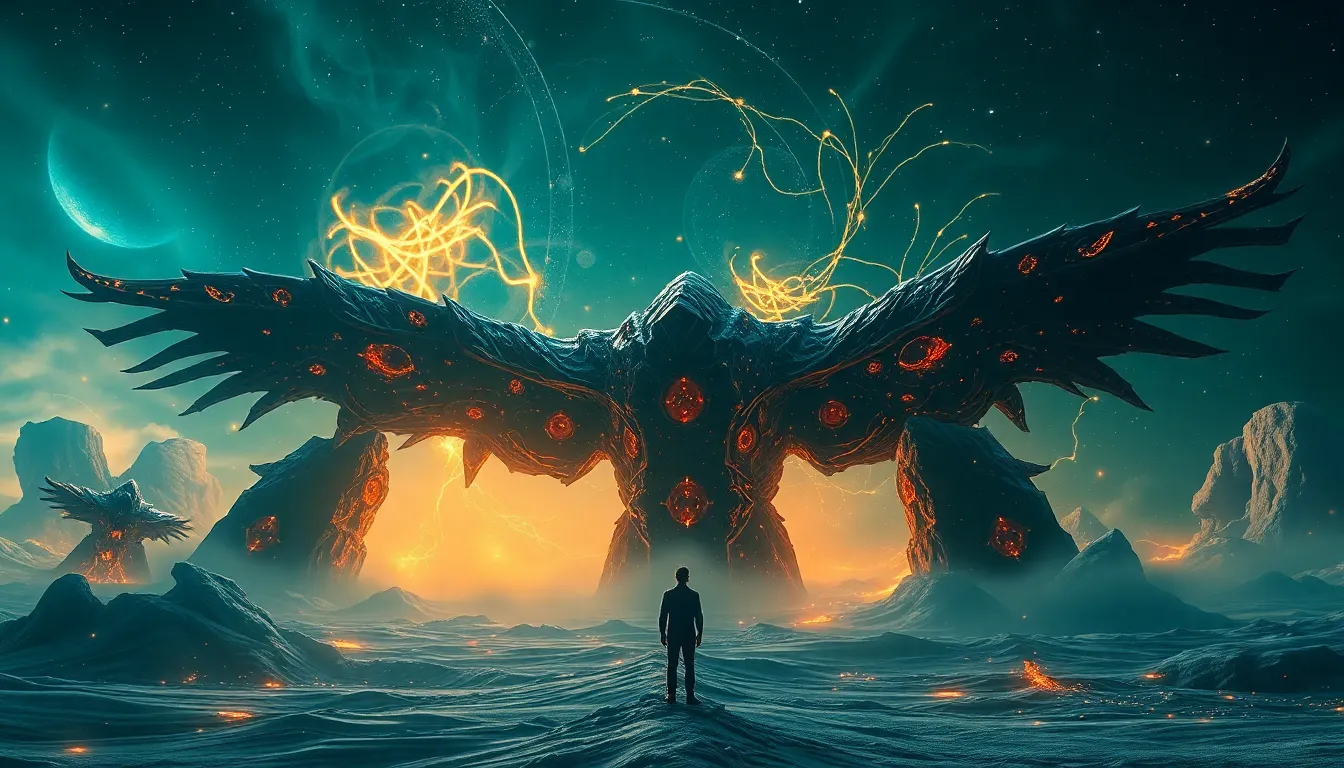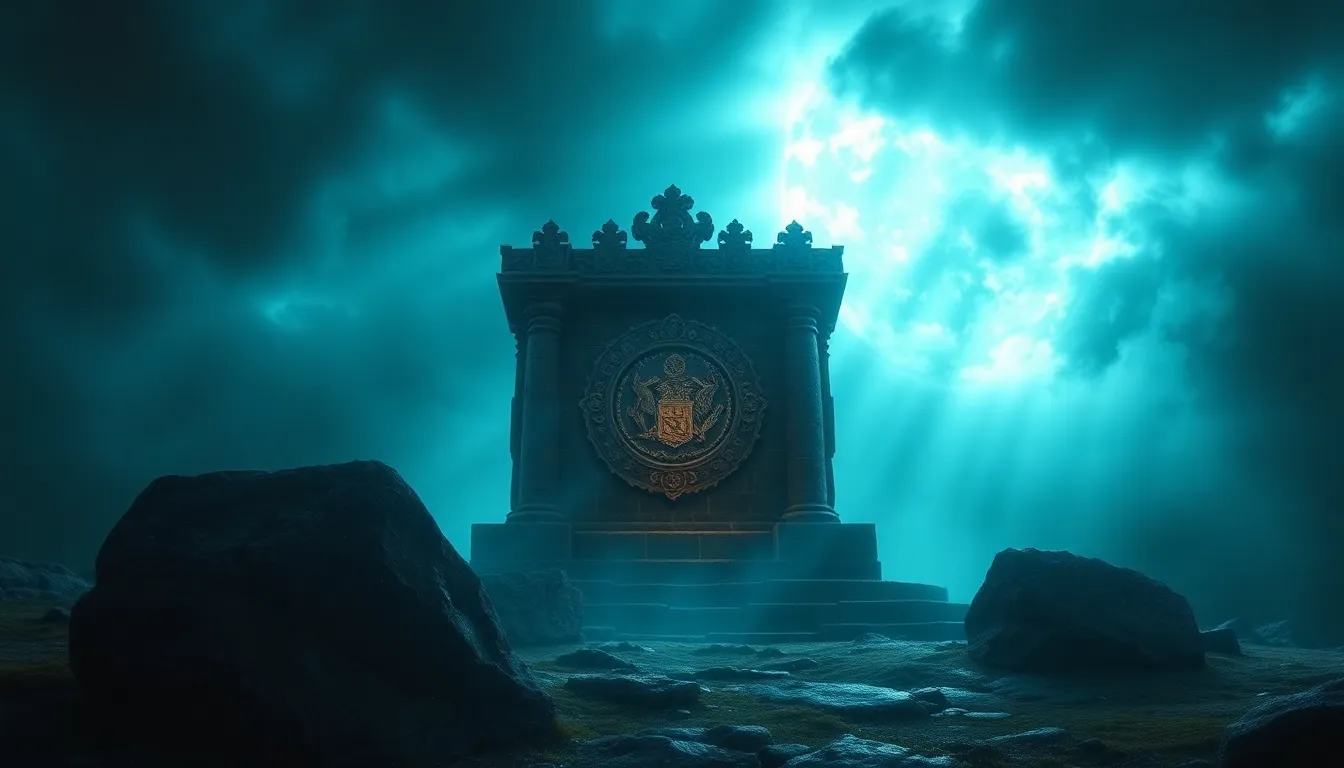Tales of Triumph: The Most Inspiring Mythological Battles
1. Introduction to Mythological Battles
Mythological battles are narratives that depict conflicts between gods, heroes, and mythical creatures, often reflecting the values and beliefs of the cultures from which they originate. These epic confrontations serve not only as entertainment but also as moral lessons, illustrating the struggle between good and evil, order and chaos.
Significance of these battles can be seen across various cultures, providing insights into human nature, societal values, and the concept of heroism. Themes of triumph and heroism are prevalent, showcasing how individuals overcome insurmountable odds through courage, intelligence, and moral integrity.
2. The Epic Battle of Good vs. Evil: A Universal Theme
The archetype of good versus evil is a central theme in mythology worldwide. This conflict often symbolizes the eternal struggle between positive and negative forces, reflecting humanity’s own moral dilemmas.
- Zoroastrianism: The battle between Ahura Mazda (good) and Angra Mainyu (evil) reflects the duality of existence.
- Hinduism: The Mahabharata and Ramayana depict numerous battles where good ultimately prevails over evil, exemplifying dharma (righteousness).
These narratives serve as a reminder that good may be challenged, but ultimately, it prevails, reinforcing hope and moral fortitude in society.
3. The Titanomachy: Zeus vs. the Titans
The Titanomachy is a significant conflict in Greek mythology, marking the battle between the Olympian gods, led by Zeus, and the Titans, who were their predecessors. This battle was not simply a clash of strength, but also of strategy and alliances.
Background: The Titans, powerful beings born from Gaia and Uranus, ruled during the Golden Age. However, their rule was challenged by the Olympians, who sought to establish a new order.
- Key Battles: The Titanomachy lasted for ten years, characterized by fierce confrontations on Mount Olympus and the plains of Tartarus.
- Strategies: Zeus utilized the Cyclopes and the Hecatoncheires to forge powerful weapons and change the tide of battle in favor of the Olympians.
The victory of Zeus symbolized the triumph of order over chaos, establishing the Olympian gods’ supremacy and shaping the course of Greek mythology.
4. The Ramayana: Rama’s Quest Against Ravana
The Ramayana is an ancient Indian epic that narrates the life of Prince Rama and his quest to rescue his wife Sita from the demon king Ravana. This epic is not only a story of adventure but also a profound exploration of duty, righteousness, and the nature of good and evil.
Key characters include:
- Rama: The embodiment of virtue and heroism.
- Sita: Rama’s devoted wife, representing purity and resilience.
- Ravana: The antagonist, whose abduction of Sita sets off the epic battle.
Rama’s triumph over Ravana signifies the victory of dharma and illustrates the moral implications of righteousness, love, and sacrifice.
5. The Mahabharata: The Kurukshetra War
The Mahabharata is one of the longest epic poems in the world, detailing the conflict between the Pandavas and the Kauravas, culminating in the great Kurukshetra War. This battle is rich with philosophical dilemmas and moral complexities.
Key figures include:
- Arjuna: A warrior prince faced with a moral crisis about fighting his own kin.
- Krishna: Arjuna’s charioteer, who provides profound guidance, encapsulated in the Bhagavad Gita.
- Bhishma: A noble warrior whose vow of celibacy and loyalty complicates the conflict.
The lessons learned from the battle extend beyond physical victory, emphasizing the importance of duty, righteousness, and the consequences of choices made in the heat of conflict.
6. Beowulf: The Heroic Feats Against Grendel and His Mother
Beowulf is a landmark of Anglo-Saxon literature, chronicling the adventures of the hero Beowulf as he battles formidable foes, including the monster Grendel and his vengeful mother.
Significance:
- Bravery: Beowulf’s willingness to confront fearsome creatures reflects the heroic ideal of courage.
- Loyalty: The bonds between Beowulf and his followers highlight the importance of kinship and loyalty in their society.
The themes of bravery and loyalty resonate throughout Beowulf’s triumphs, reinforcing the values of the time and the timeless nature of heroism.
7. The Battle of the Gods: Norse Ragnarok
Ragnarok is the catastrophic battle in Norse mythology, foretelling the death of many gods, including Odin and Thor, and the ultimate destruction and rebirth of the world.
Key figures in this epic conflict include:
- Odin: The Allfather, who sacrifices much in preparation for the impending doom.
- Thor: The thunder god, who meets his fate against the serpent Jormungandr.
- Loki: The trickster god whose actions lead to the climactic battle.
Ragnarok embodies the cyclical nature of existence, emphasizing themes of renewal and rebirth following destruction, illustrating that even in demise, there is the potential for new beginnings.
8. The Clash of Titans: The Battle of Kurukshetra in Detail
An in-depth look at the Kurukshetra War reveals complex strategies and the diverse array of warriors involved. Each character faces not only physical challenges but also philosophical dilemmas that shape their destinies.
- Strategies: The use of various formations and tactics by both sides highlights the significance of intellect in warfare.
- Philosophical Dilemmas: Characters grapple with issues of morality, duty, and the consequences of their actions throughout the conflict.
The impact of the battle on the characters’ destinies is profound, leading to reflections on the nature of life, death, and the consequences of war.
9. Modern Interpretations of Mythological Battles
Contemporary media has brought mythological battles to new audiences, reinterpreting ancient tales for modern sensibilities. Films, books, and games often draw on these narratives, adapting them to suit current themes.
- Films: Movies like “300” and “The Avengers” showcase mythological elements, blending action with heroic themes.
- Books: Authors such as Neil Gaiman and Rick Riordan have revitalized mythological stories, making them accessible and engaging for new generations.
- Games: Video games like “God of War” and “Assassin’s Creed” incorporate mythological battles, allowing players to engage with these epic narratives interactively.
The relevance of mythological themes in contemporary society speaks to the enduring nature of these stories, reflecting our ongoing struggles and values.
10. Conclusion: The Enduring Legacy of Mythological Triumph
The tales of mythological battles resonate through time, providing not only thrilling narratives but also profound reflections on the human experience. Themes of triumph, heroism, and the eternal struggle between good and evil continue to inspire individuals across cultures.
As we explore these epic confrontations, we gain insight into ourselves, our values, and the timeless nature of storytelling, reminding us that even in our darkest moments, the light of heroism and triumph can prevail.




